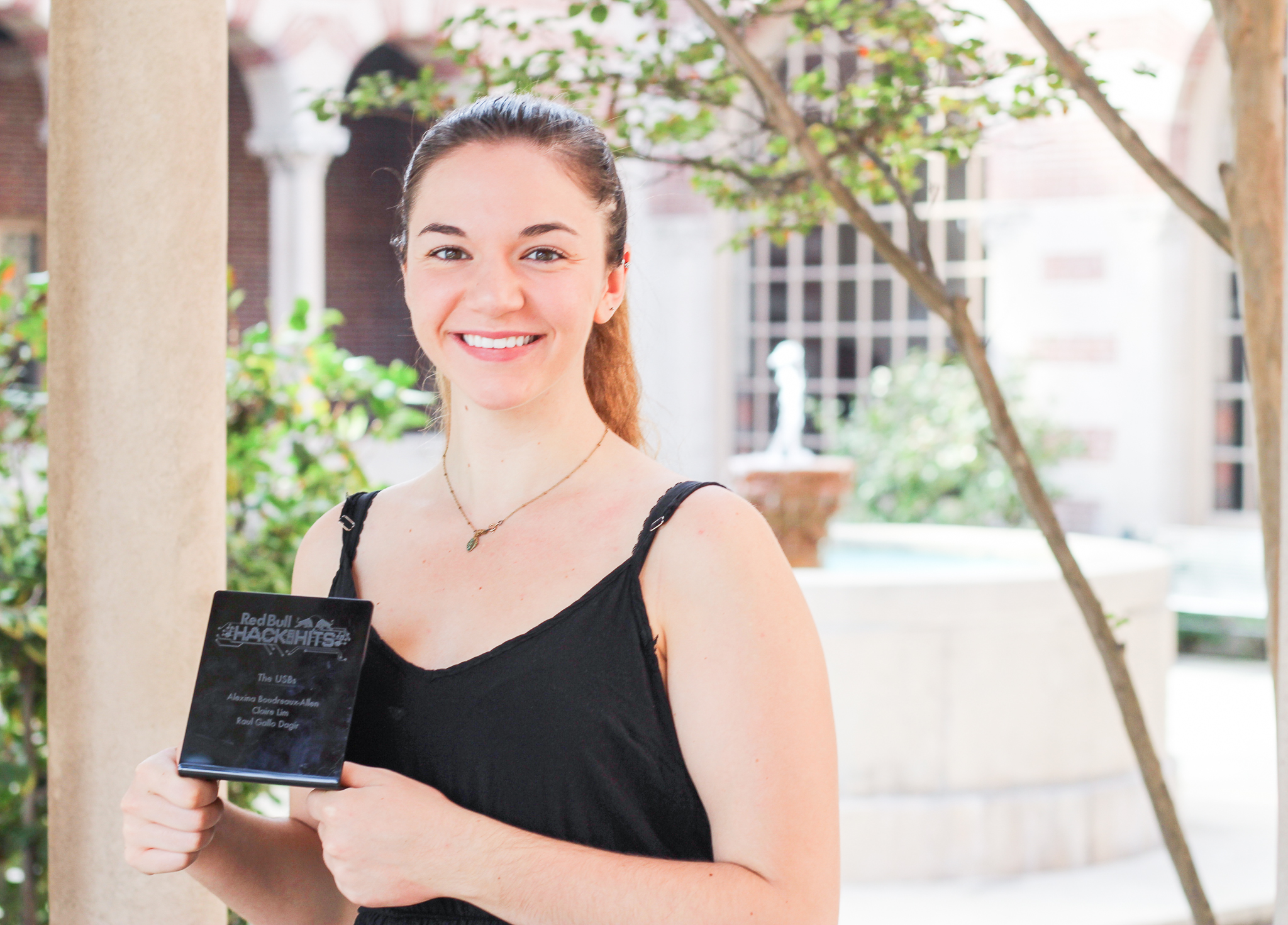Student wins award for building DJ mask

Senior Alexina Boudreaux-Allen won a paid trip to a music festival during the Red Bull Hack the Hits hackathon after building a mask for DJs and electronic music performers with a team of students. (Julia Mazzucco | Daily Trojan)
A USC senior and two other students from Stanford University and Berklee College of Music won an all-expense paid trip to a mystery music festival at the Red Bull Hack the Hits hackathon from Oct. 12 to 15 thanks to their instrument invention, the Beat Mask, which was built in just 48 hours.
The winning team, known as the USBs, comprises Alexina Boudreaux-Allen, a computer science student at USC, Raul Dagir from Stanford and Claire Lim from the Berklee.
Boudreaux-Allen said that her team’s interests in music and technology inspired them to create Beat Mask, a mask for DJs and electronic music performers with a machine learning algorithm that transforms voice input into live electronically-produced music.
“One of the things that we all had in common is that we’re all performers,” Boudreaux-Allen said. “We just wanted to see if we could find a way to make electronic performances to be more live-feeling, like for audiences.”
The product was constructed from a $4 spray painting mask from Home Depot, Boudreaux-Allen said.
Using a microphone from Apple earphones, Beat Mask picks up the wearer’s beatboxing and replicates it electronically. The USBs also installed LED lights that flash with the music and a gyroscope that captures movement and controls music effects.
“Being able to make something that can make a electronic producer have a more engaging set with their audience, we just thought that sounded hype, because we all perform,” Boudreaux-Allen added.
The only instruction the five groups participating were given at the hackathon was to create anything that makes sound, according to Boudreaux-Allen. However, there were a few guidelines: instruments had to be a physical product and produce sound in a musical way.
The criteria for a winning project included musicality, innovation, usability and awesomeness, according to Julie Covello, also known as DJ Shakey, one of the five hackathon judges.
Beat Mask managed to pull together all aspects and pulled ahead with its high technicality and visual engagement, according to Covello.
“It did have a high technical capability, which was incorporating the artificial intelligence and all that, which is great,” Covello said. “But I don’t want to see an instrument that only does that. It also looked really weird and unique. It had blinking lights on it, and it also had synth functions:you could turn a knob and you could filter a sound.”
Matt Moldover, one of the five mentors in the music industry that helped teams over the 48-hour period, initially worried about the winning team because they spent the most time in the ideation stage.
“Conceptualizing a mask as a musical instrument is something I don’t think I’ve ever seen before,” Moldover said. “It won in the novelty department and in the presentation department, and in the way they pulled it together.”
The team worked through obstacles with machine learning with help from mentors like Moldover and USC alumnus Mike Gao, who specializes in the area of programming and software.
“I’m a graduating senior right now, and I have no idea what I want to do with my life,” Boudreaux-Allen said. “But this hackathon … I thought it was freaking awesome for multiple reasons, like one, you just get to like come up with an idea and just make it and see it all the way through. And that’s a really satisfying thing.”
